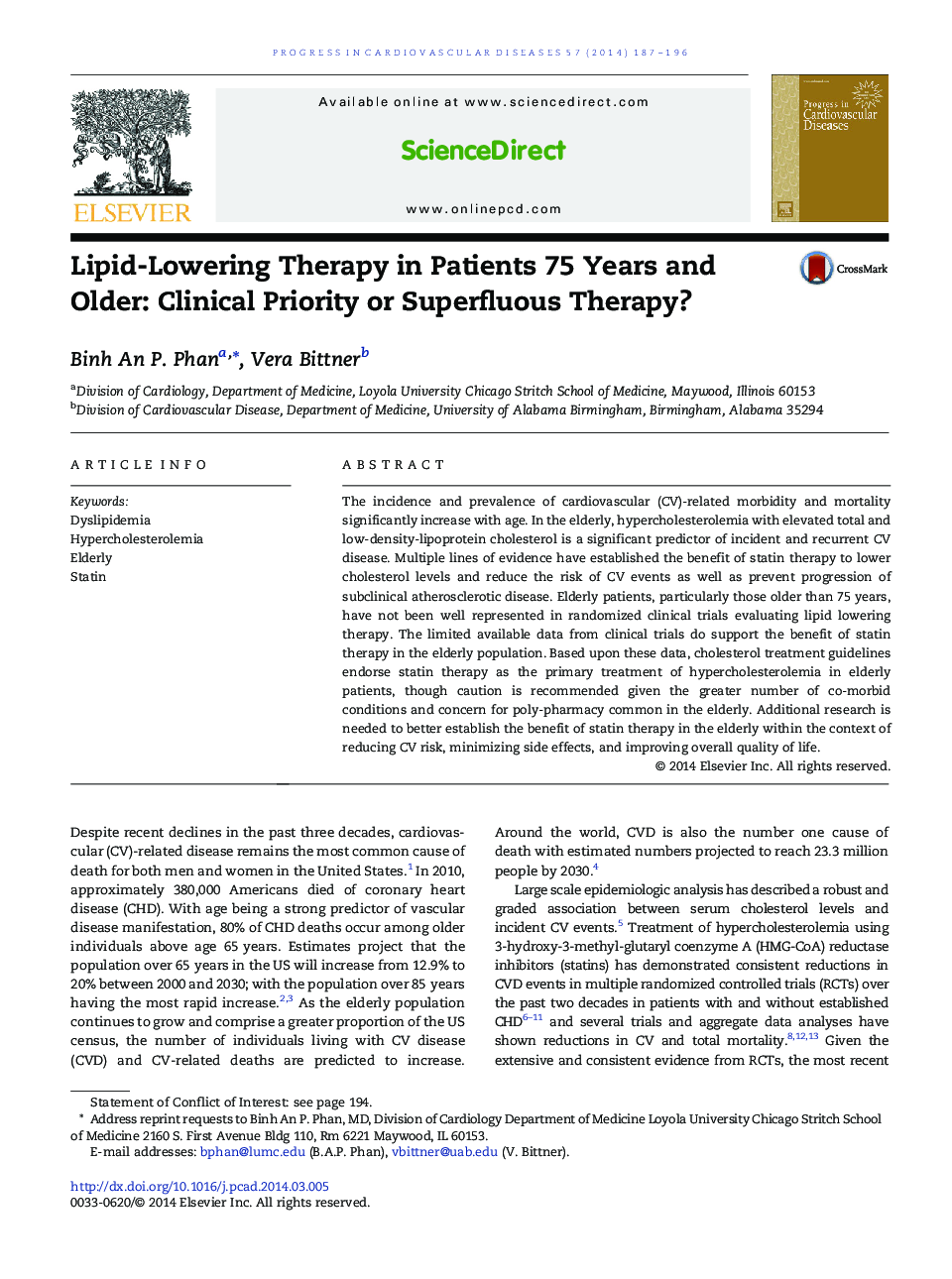| Article ID | Journal | Published Year | Pages | File Type |
|---|---|---|---|---|
| 3006425 | Progress in Cardiovascular Diseases | 2014 | 10 Pages |
The incidence and prevalence of cardiovascular (CV)-related morbidity and mortality significantly increase with age. In the elderly, hypercholesterolemia with elevated total and low-density-lipoprotein cholesterol is a significant predictor of incident and recurrent CV disease. Multiple lines of evidence have established the benefit of statin therapy to lower cholesterol levels and reduce the risk of CV events as well as prevent progression of subclinical atherosclerotic disease. Elderly patients, particularly those older than 75 years, have not been well represented in randomized clinical trials evaluating lipid lowering therapy. The limited available data from clinical trials do support the benefit of statin therapy in the elderly population. Based upon these data, cholesterol treatment guidelines endorse statin therapy as the primary treatment of hypercholesterolemia in elderly patients, though caution is recommended given the greater number of co-morbid conditions and concern for poly-pharmacy common in the elderly. Additional research is needed to better establish the benefit of statin therapy in the elderly within the context of reducing CV risk, minimizing side effects, and improving overall quality of life.
